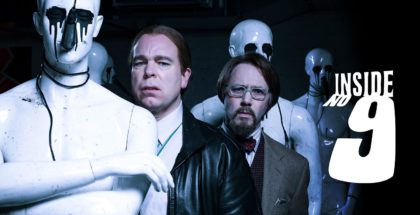Normal People review: A smart and sensual adaptation
Review Overview
Big issues
8Young stars
8Smart craft
8Katherine McLaughlin | On 22, Apr 2020
It has been said that 29-year-old Irish author Sally Rooney is a defining voice of her generation. In 2017, she was named as the Sunday Times writer of the year and, in 2018, her second novel Normal People was nominated for the Man Booker Prize and won best novel at the Costa Book Awards. Her swift dialogue, biting humour, and insightful take on modern social capital and how that impacts the lives of twenty-somethings has had her likened to Jane Austen.
This 12-part drama based on Normal People is elegantly translated from page to screen by the author, alongside Alice Birch and Mark O’Rowe. Keeping in killer dialogue, and reading between the lines, the first four episodes introduce the uneasy and shifting power dynamic between Marianne and Connell as they come of age in Ireland. The couple subtly finger the pages of radical literature, such as Doris Lessing’s The Golden Notebook and Kazuo Ishiguro’s work, nodding to the fact that though they may be living by the constraints of social rules there are still many lessons yet to come. They mostly learn the hard way, through the mistakes they make in their on-off relationship, and as they enter university and the adult world.
Daisy Edgar-Jones and Paul Mescal star as the young lovers, whom we first meet in their final year at school. Connell’s mother is a cleaner at Marianne’s huge white mansion in Sligo, where the pair start chatting. He is a strapping sportsman and part of the popular gang at school, where he hides his smarts; she is a proudly intelligent loner, who obnoxiously annoys everyone around her, including the teachers. They strike up an instant connection, which turns into a secret sexual tryst, with Connell not wanting to reveal the relationship to his peers, for fear of their judgement.
Just like Rooney’s novel, this is a sophisticated affair, relying on the integral bond between Connell and Marianne to communicate and grapple with big themes such as feminism and class politics. The two young actors do fantastic work with complex characters who say a lot through body language and sexual encounters. One of the major components of the novel shows how their social currency changes, depending on location or setting. At school, Marianne is confident in her opinions but also vulnerable and not sure of how to navigate this romance, while at university, her intelligence and wealth offers new prospects.
Edgar-Jones inhabits the role seemingly effortlessly and it’s an impressively discerning and tender depiction of a young woman on the cusp of adulthood. Mescal brings a rare sensitivity and nuance to Connell, with his piercing blue eyes cautiously observing and deciphering situations. His rare outbursts overflow with raw emotion.
In the first four episodes directors Lenny Abrahamson and Hettie McDonald are careful to show the excitement, pain and heartbreak of first love for both. They pair the understated and the intense to craft layered and meaningful visuals that speak to both the interior and everyday lives of the characters. They accentuate what goes on behind closed doors before revealing fascinating group interactions with people from all walks of life. Marianne and Connell may read the same books, and share an intimate bond, but they don’t speak the same social language. As these two characters blaze their own imperfect trails, cold reality sneaks in.
The show keeps you invested in their intersecting and diverging narratives by perceptively digging under the skin of the complex conventions of class. This is a smart and sensual adaptation that boasts two impressive lead performances and recalls the poignant work of Terence Davies.




















